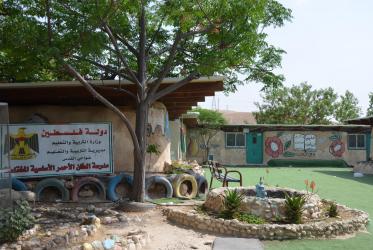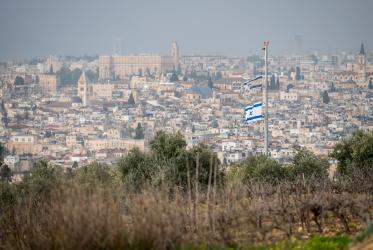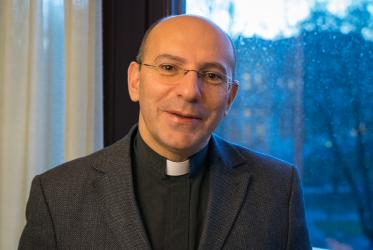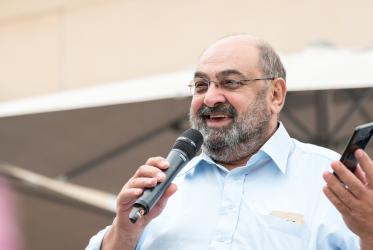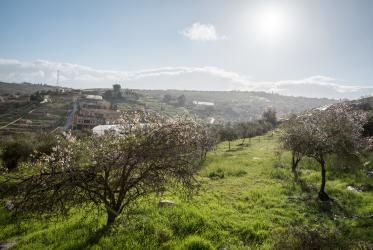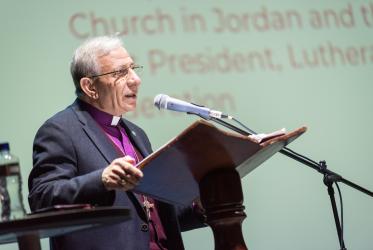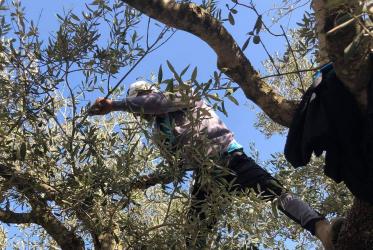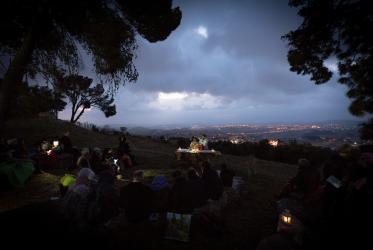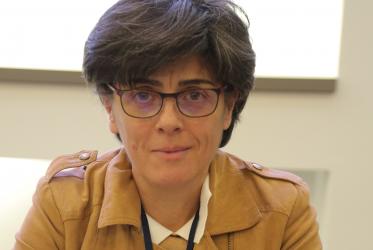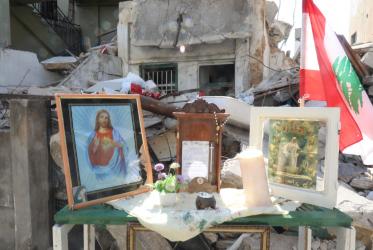Displaying 101 - 120 of 348
30 March 2021
East Jerusalem: Denied citizenship and the vote
30 March 2021
In pictures: Week of Prayer for Christian Unity
01 February 2021
A hopeful, but not optimistic Palestinian ecumenist
09 December 2020
WCC congratulates Dr Audeh Quawas on appointment to Jordanian Senate
27 November 2020
Bishop Munib Younan honored with award for his leadership
19 November 2020
“Your life is in peace when you collect the olives"
29 October 2020
“Olive trees are holy signs of peace, older than anyone”
22 October 2020
Hope prevails in times of crisis in Lebanon
14 September 2020
“Stand together praying for just peace in Palestine and Israel”
14 September 2020
New student body at Bossey Ecumenical Institute “a source of joy”
14 September 2020

